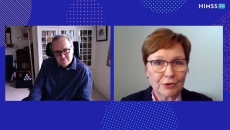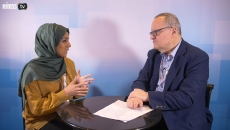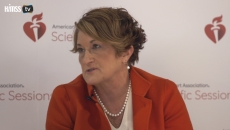Women in Health IT
HIMSS Director of Privacy and Security Lee Kim offers insights and advice for health systems as they try to defend against not only the coronavirus pandemic but also the opportunistic cyberattacks that are using it as cover to sow chaos.
Patient Orator founder and CEO Kistein Monkhouse discusses the long history of racial inequalities in healthcare, and how technology can pinpoint those with the highest risk.
In this episode of The Alessi Agenda, Sinikka Salo, senior medical officer at the Regional State Administrative Agencies in Finland, explains how Finnish citizens are empowered to use their health data effectively.
Scripps Translational Science Institute Epidemiologist Jennifer M. Radin discusses how data from wearables such as Fitbits can be used to track influenza-like illnesses, including COVID-19.
As a new study shows that no country has achieved gender equality, eight women in health tech tell us whether they are seeing any changes in the industry.
Dr. Khatoon Shubbar, who is with Bahrain's ministry of health, says despite its many challenges, telemedicine is being deployed in the country to help reduce the burden on secondary care.
Gaines discusses how the primary care provider's role is rapidly changing to include managing more aspects of the patient's life.
Older adults live in a world where they are invisible, so it's time to create one that enables them to thrive, says Dr. Louise Aronson, professor of geriatrics at UCSF.
Motive Medical Intelligence's Director of Solution Development Bette Jane Reese says the first step of helping patients take part in their care is recognizing the difficulty of behavior change.







